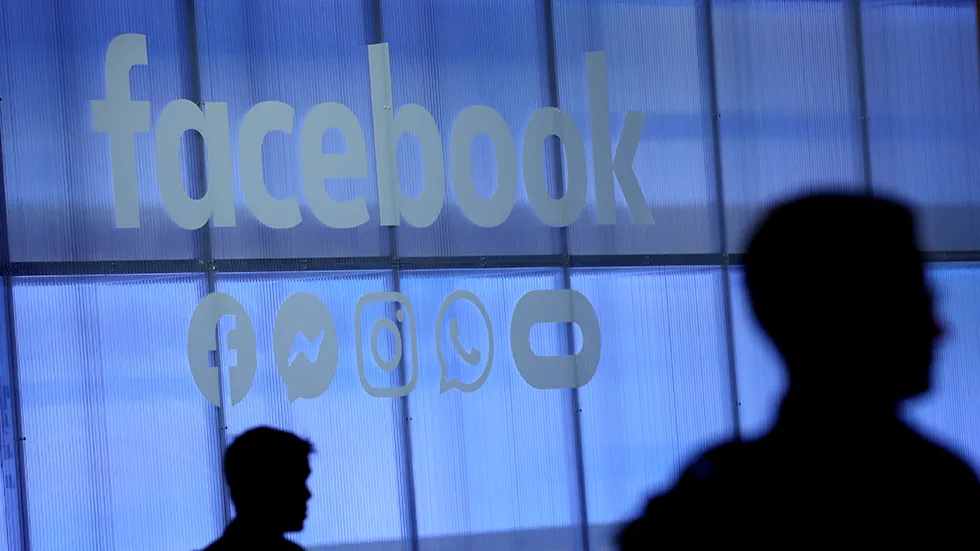In an era where misinformation and propaganda pose significant challenges to social media platforms, Facebook’s introduction of “state-controlled media” labels has sparked considerable debate about their effectiveness and impact on user behavior. A recent study conducted by researchers from Carnegie Mellon University, Indiana University, and the University of Texas at Austin has shed light on how these labels influence user engagement with content from authoritarian nations like China and Russia, while also revealing unexpected positive reactions towards Canadian state media.
Understanding “State-Controlled Media” Labels
Before delving into the study’s findings, it’s essential to grasp what Facebook’s “state-controlled media” labels signify. These labels are part of a broader initiative aimed at providing users with context about the sources of news articles they encounter on the platform. When a news source is labeled as “state-controlled,” it indicates that the outlet receives significant government backing or operates under government influence. The goal is to empower users to make informed judgments about the news they consume, particularly when it comes from sources that may carry political or governmental bias.
The labels were implemented to combat misinformation and to enhance transparency regarding the origins of news content. By identifying state-controlled media, Facebook hopes to reduce the spread of potentially biased information while encouraging users to critically evaluate the reliability of the articles they encounter.
Key Findings from the Study
The research involved several experiments aimed at measuring the impact of these labels on user engagement. Here are some key findings from the study:
Experiment One: User Engagement with Labeled Content
- The first experiment surveyed 1,200 U.S.-based Facebook users to assess engagement with posts containing state-controlled media labels. The results indicated a marked decrease in engagement with content from Russia and China, but this decrease was significant only when users actively noticed the labels. This highlights the importance of visibility and awareness in how labels affect user interactions.
Experiment Two: Public Sentiment and User Behavior
- In a second test involving 2,000 U.S. Facebook users, researchers examined how public sentiment influenced reactions to state-controlled media labels. Interestingly, users demonstrated positive engagement with Canadian state-controlled media, while content from Chinese and Russian sources elicited negative responses. This disparity suggests that users’ preconceived notions about the countries involved play a significant role in shaping their engagement with labeled content.
Experiment Three: Label Visibility and Engagement Reduction
- A third experiment focused on user interaction with state-controlled media before and after the implementation of labels. The researchers observed a substantial impact: a 34% decrease in the sharing of labeled posts and a 46% drop in user likes. Furthermore, the study revealed that educating users about the labels significantly increased the likelihood of them noticing these indicators, suggesting that awareness and comprehension are crucial for effective engagement.
The Broader Impact on User Engagement
The introduction of “state-controlled media” labels has raised critical questions about their influence on user engagement with labeled content. Several factors contribute to the observed decline in interactions, including:
Trust Issues: Users may be hesitant to engage with content from labeled sources due to concerns about bias or governmental influence. This skepticism persists even when the quality or accuracy of the article may be high.
Algorithmic Implications: Facebook’s algorithms may deprioritize content from labeled sources, reducing visibility in users’ feeds and, in turn, impacting engagement levels.
Perceived Credibility: Content that is labeled as “state-controlled” may be viewed as less credible or trustworthy. Users are likely to think twice before engaging with such content.
Limited Reach: State-controlled media outlets might face restrictions in promoting their content through paid advertising on the platform, further hindering their visibility and reach.
Despite these challenges, the study concluded that the labeling of state-controlled media could effectively reduce the dissemination of misinformation and propaganda on Facebook. However, the researchers acknowledged limitations in establishing a precise cause-and-effect relationship due to the opacity of Facebook’s newsfeed algorithms.
Recommendations for Improvement
In light of the findings, the authors of the study recommend several strategies for social media companies, particularly Facebook, to enhance the effectiveness of their labeling policies:
Clear Communication: Social media platforms should communicate labeling policy changes transparently to users, providing clear explanations about the meaning and implications of these labels.
Increased Visibility: Labels must be prominently displayed to ensure users notice them and understand their significance, as the study suggests that user awareness is critical to engagement outcomes.
User Education: Educating users about the importance of recognizing labeled content can help improve their critical thinking skills regarding the news they consume.
As the battle against online misinformation and propaganda continues, the researchers urge Facebook and other social platforms to take proactive steps in ensuring that users are informed about labeling policies. By doing so, these platforms can enhance their efforts to combat misinformation while fostering a more informed user base.
Conclusion: The Ongoing Challenge of Misinformation
Facebook’s introduction of “state-controlled media” labels is a noteworthy effort to address the challenges posed by misinformation and state influence in the digital age. The findings from the recent study illuminate the complex dynamics of user engagement in response to these labels, revealing both challenges and opportunities for improvement.
As social media continues to shape public discourse, the effectiveness of labeling initiatives will play a critical role in guiding users toward reliable information sources. By fostering transparency and promoting user awareness, platforms like Facebook can enhance the integrity of the information ecosystem and empower users to make informed decisions about the news they engage with.
In this ongoing fight against misinformation, it is crucial for social media companies to recognize the importance of user trust and the implications of their labeling policies. By taking the necessary steps to improve user engagement with labeled content, Facebook can further its mission of creating a safer and more informed online environment.

